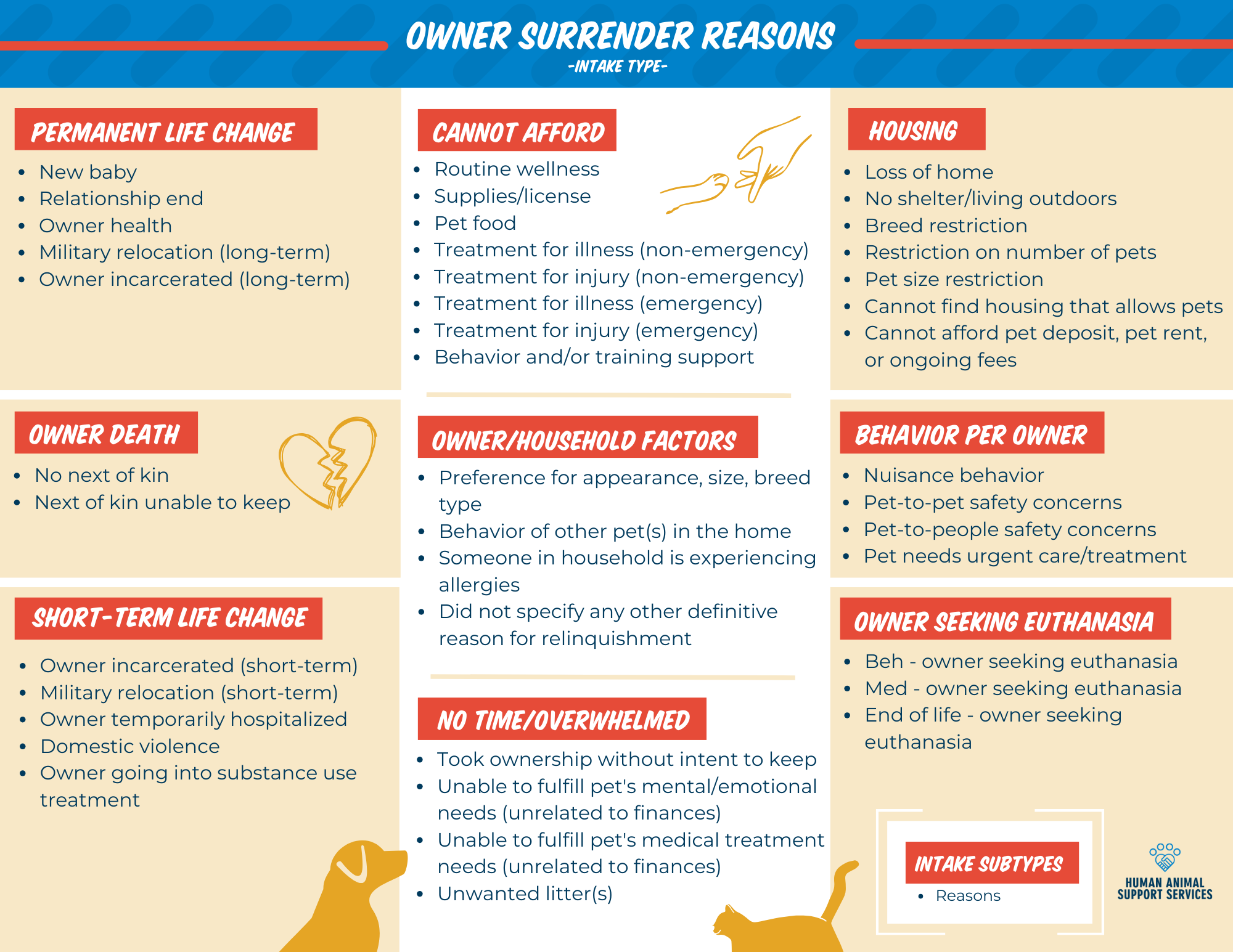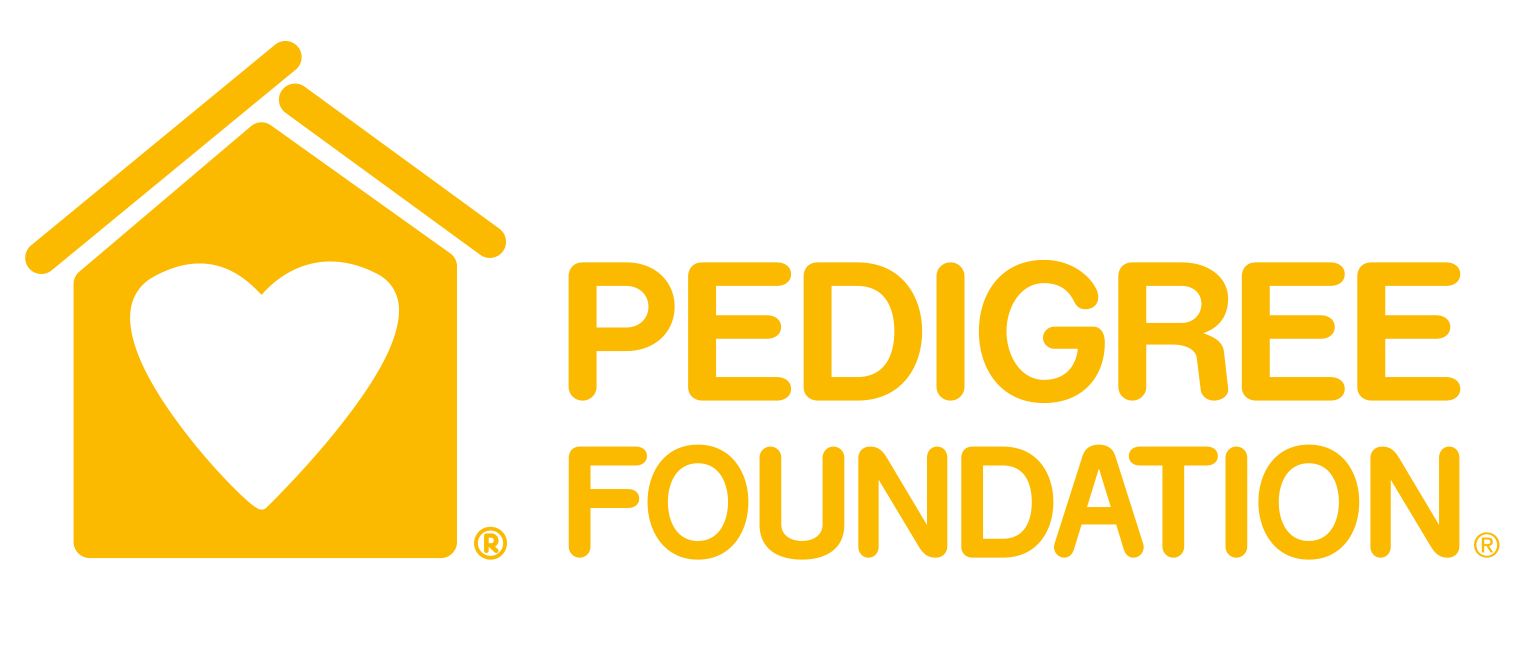(AUSTIN, TX) August 15, 2024–Human Animal Support Services (HASS), an international project revolutionizing the animal welfare industry by uniting human and animal welfare, announces an industry first–a standardized list of intake reasons for owner surrender. A major collaboration with industry experts such as the Humane Society of the United States (HSUS), Shelter Animals Count (SAC), behavior and veterinary professionals, animal welfare organization-led working groups, focus groups, and preliminary testing within HASS pilot shelters, the HASS intake reasons list presents a proposed solution to standardizing intake data where shelter software may fall short and provide a guide for getting to the root causes of owner surrender in a community.
“The HASS designated reasons for owner surrender intake is a shift in mindset,” said Amanda Foster, HASS Assistant Director of Implementation Analysis Data & Research. “From collecting information about an animal to simply move them through the system, to instead, gathering more information about why pets are entering shelters in the first place to not only develop preventative measures, but help solve both people and pet problems at once.”
HASS is utilizing this list of vetted intake reasons to arm animal welfare organizations with the tools needed to more accurately and effectively provide pet support services to people AND pets, especially in a post-pandemic environment where shelter intake today looks very different than it did prior to 2020.

Organizations can use this guide covering how to collect better intake data to update the way that they currently collect reasons for intake in their shelter software to bring more attention to the core elements behind pets entering shelters. Upon reviewing these human-centric reasons, shelters can determine what is most impacting pet intake in their community to work towards investing in programs and resources that prevent unnecessary surrenders.
To take it a step further, organizations can now also use HASS resources to capture an even more accurate picture of the complex circumstances affecting their community. Collected through a customizable, general form that focuses on multiple human-specific root causes for owner surrender, such as lack of access to affordable veterinary care or change in housing, this new intake data collection process empowers animal welfare staff to ask more about the family in need of pet support services vs. questions about the pet alone. Paired with a trauma-informed, client-centric (or customer-service) approach, this new list of intake reasons allows shelters to potentially avoid unnecessary intake and help inform future programs that they can offer the public directly. In addition to this list, HASS has developed specific implementation tools for animal welfare organizations to begin utilizing immediately. Recognizing that each community and shelter has unique needs, this free-to-use Intake Triage Guide complemented by additional intake-specific solutions found in the HASS Playbook, are adaptable to any shelter size, amount of community members served and more. In it, users will find a comprehensive, step-by-step intake data collection process to improve understanding of the main causes for owner surrenders, help assess the effectiveness of existing support measures, and create pathways to reduce unnecessary separation of people and pets.
###
About Human Animal Support Services (HASS):
The Human Animal Support Services (HASS) project is a movement seeking to revolutionize the animal welfare industry by leading with and embracing a community support model. By providing both private and municipal animal shelters with equitable access to data-driven resources, education, and implementation tools, HASS aims to create pathways toward unified support systems for pets and their people in every community. Separated into three main pillars education, data, and policy, HASS encompasses a network of more than 1,500 animal and human welfare professionals. HASS’ 41 pilot shelters and 175 partner organizations have joined the movement by committing to implement the HASS model. To learn more, visit www.humananimalsupportservices.org.





